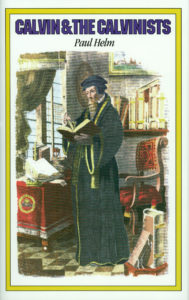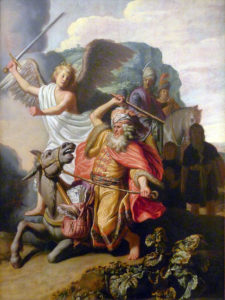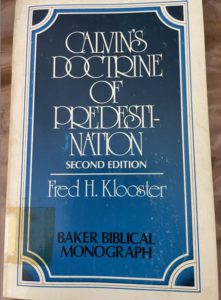 Calvin’s doctrine of predestination (election and reprobation) is not a product of philosophical deduction. It is a result of Calvin’s exegesis of Scripture. Calvin gives two concise definitions of predestination:
Calvin’s doctrine of predestination (election and reprobation) is not a product of philosophical deduction. It is a result of Calvin’s exegesis of Scripture. Calvin gives two concise definitions of predestination:
Predestination Defined
We call predestination God’s eternal decree, by which he determined with himself what he willed to become of each man. For all are not created in equal condition; rather, eternal life is foreordained for some, eternal damnation for others. Therefore, as any man has been created to one or the other of these ends, we speak of him as predestined to life or death.” [Inst. 3.21.5]
As Scripture, then, clearly shows, we say that God once established by his eternal and unchangeable plan those whom he long before determined once for all to receive into salvation, and those whom, on the other hand, he would devote to destruction. We assert that, with respect to the elect, this plan was founded upon his freely given mercy, without regard to human worth; but by his just and irreprehensible but incomprehensible judgment he has barred the door of life to those whom he has given over to damnation. Now among the elect we regard the call as a testimony of election. Then we hold justification another sign of its manifestation, until they come into the glory in which the fulfillment of that election lies. But as the Lord seals his elect by call and justification, so, by shutting off the reprobate from knowledge of his name or from the sanctification of his Spirit, he, as it were, reveals by these marks what sort of judgment awaits them.[Inst. 3.21.7]
For Calvin, election is gratuitous, that is, it is not based on foreknowledge of merit. Continue reading “Calvin on Predestination (Election and Reprobation)”
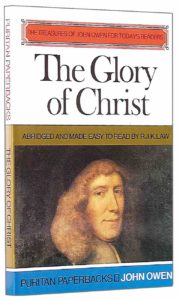 While Peter de Rosa’s verses on the humanity of Christ may be heart-felt and evocative, John Owen’s reflection on Christ assuming humanity is suffused with contemplation and prayer. For Owen theology ends with doxology. Given below is a much abbreviated and stylistically modernized version of Owen’s reflection of the Incarnation as Christ’s act of self-humiliation – Christ veiled his divine glory in the flesh.*
While Peter de Rosa’s verses on the humanity of Christ may be heart-felt and evocative, John Owen’s reflection on Christ assuming humanity is suffused with contemplation and prayer. For Owen theology ends with doxology. Given below is a much abbreviated and stylistically modernized version of Owen’s reflection of the Incarnation as Christ’s act of self-humiliation – Christ veiled his divine glory in the flesh.*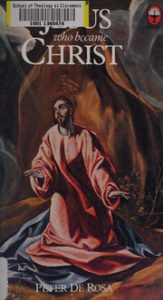
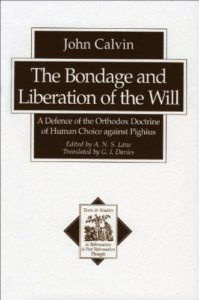
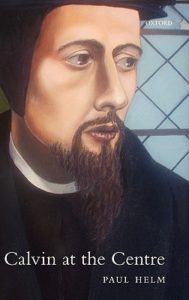 In my earlier post,
In my earlier post, 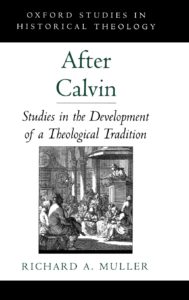 One of the problems with the “Calvin against Calvinists” scholarship is that it is based on questionable theological premises. This includes the claim that there is conflict between the predominantly scriptural and Christocentric theology of Calvin and the theology of later Calvinists or Reformed Scholasticism whose application of Aristotelian philosophy and speculative formulation of the will of God resulted in a doctrine of God which is rationalistic and predestinarian.
One of the problems with the “Calvin against Calvinists” scholarship is that it is based on questionable theological premises. This includes the claim that there is conflict between the predominantly scriptural and Christocentric theology of Calvin and the theology of later Calvinists or Reformed Scholasticism whose application of Aristotelian philosophy and speculative formulation of the will of God resulted in a doctrine of God which is rationalistic and predestinarian.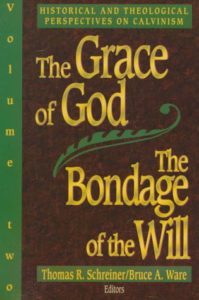
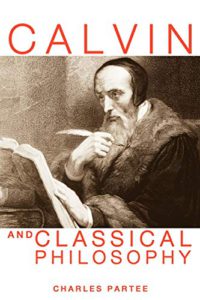 The frequent attacks on Calvinism by non-Calvinists in the Web gives the impression that Calvinism is a pernicious Christian sect. The attacks often highlight predestination as a major problem with Calvinism. The Calvinist’s doctrine of predestination is regarded as a rigid and legalistic doctrine that violates our sense of justice. It also robs the believer of his assurance of salvation.
The frequent attacks on Calvinism by non-Calvinists in the Web gives the impression that Calvinism is a pernicious Christian sect. The attacks often highlight predestination as a major problem with Calvinism. The Calvinist’s doctrine of predestination is regarded as a rigid and legalistic doctrine that violates our sense of justice. It also robs the believer of his assurance of salvation.